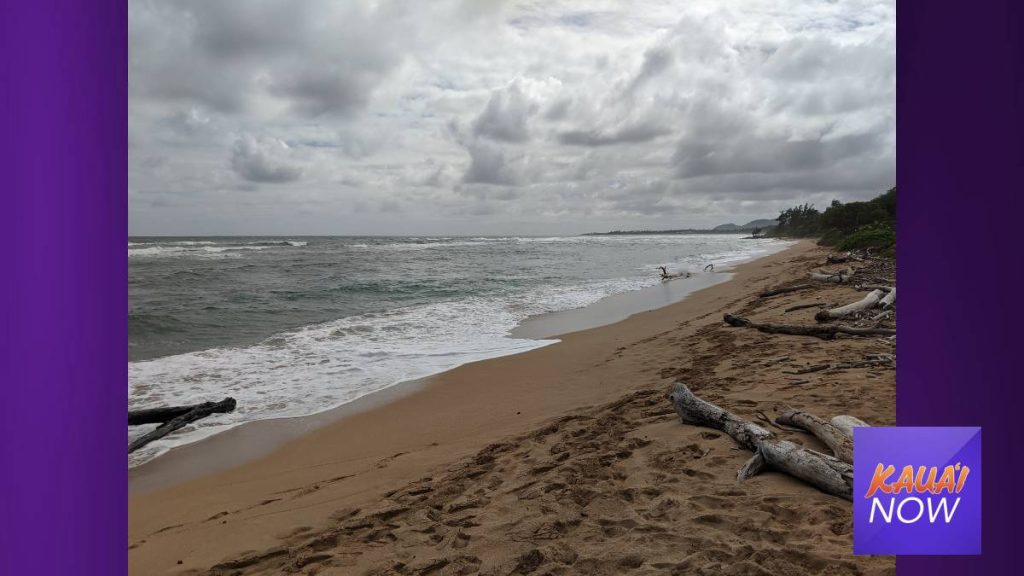Kauaʻi nonprofit urges public meeting about dumping of treated sewage near Lydgate Beach Park

The Hawaiʻi State Department of Health published a notice on June 26 that tentatively recommends a permit be renewed to allow the County of Kauaʻi to continue dumping treated sewage into the ocean off of Lydgate Beach Park for the next 5 years.
The treated wastewater, which is processed at the Wailua Wastewater Treatment Plant, is primarily used to water the Wailua Golf Course and the Harry and Jeanette Weinberg Sports park located near Lydgate Beach Park, according to the Department of Health.
The facility can treat up to 1.5 million gallons of wastewater per day. But the notice said that when the treated wastewater cannot be released at these sites because of overflow or heavy rains, the current Wailua wastewater facility has only one alternative: dump it into the ocean.
Renewing the permit to dump treated sewage 30 feet deep and about 235 yards from the popular beach “essentially ‘rubber stamps’ continued pollution of our oceans,” the nonprofit Surfrider Foundation of Kaua’i said in a statement on its website.
The Wailua Wastewater Treatment Plant provides essential primary and secondary wastewater treatment for approximately 4,500 people in the Wailua Resort area and Kapaʻa Town Highway Corridor, the state Department of Health said in an email to Kaua’i Now.
The facility treats the water by preliminary influent screening, grit removal, flow equalization, complete mix aeration basins, secondary clarification, disk filtration and chlorination, according to the Department of Health’s notice.
But the facility is an aging plant built in a floodplain and tsunami inundation zone with a history of failing pipes and sewage spills, Surfider Foundation Kauaʻi said on its website, adding that it has needed an upgrade for more than a decade and cannot meet the demands of the growing hotel industry.
Dr. Carl Berg, a marine biologist and senior scientist with Surfrider Kauaʻi Chapter, said: “Dumping sewage on the coral reefs, it’s just unthinkable.”
The permit does not include limitations for nutrients frequently associated with treated wastewater that are toxic to coral reefs and can cause algal blooms that can irreparably harm reef systems, according to Surfrider Foundation Kauaʻi.
This area of the reef is not regularly surveyed or monitoried by the state, making it difficult to assess the potential impact that sewage dumping has on the coral reef, Berg said.
Berg also is concerned there is not enough reliable and accurate water sampling and data collection at the site.
The long-term monitoring data was collected by the County of Kaua‘i and submitted as part of its permit renewal application. The Department of Health evaluated the submitted data as part of the permit review process.
The Department of Health said the long-term monitoring data from the Wailua facility has shown “no significant environmental impacts near the discharge point.”
As a part of the conditions for the permit renewal, the County of Kauaʻi is required to conduct and publish monthly discharge tests and quarterly Offshore Water Quality surveys, according to the County of Kaua’i’s Wastewater Treatment Plant Public Notice Permit.
When Kauaʻi Now tried to access this water quality data on the Department of Health’s Official Water Quality Data website, the page was down.
Berg said there needs to be more monitoring information made available for the Kaua’i public.
“They don’t tell us where or when they are pumping sewage into the ocean,” he said. “We need better testing and better reporting.”
While the Department of Health is hosting a public comment period until July 26, Berg said accepting written testimony alone is not enough to really engage and listen to concerned voices in the community.
“They need to see if the community is okay with dumping sewage into the ocean,” he said.
Berg and the Kaua’i chapter of the Surfrider Foundation are asking the Department of Health to hold a public meeting to share all of the available data and information around the wastewater dumping permit to the Kaua’i community. They also are asking that the Department of Health record and document oral testimony presented at the proposed meeting.
The Department of Health’s website says that if there is significant public interest during the public comment period, a public hearing may be held regarding the wastewater permit renewal.
Written comments can be sent to cleanwaterbranch@doh.hawaii.gov or by mail at P.O. BOX 3378, Honolulu, HI 96801‑3378 until July 26.
Correction: The County of Kauaʻi — and not the Department of Health — is required to conduct and publish monthly discharge tests and quarterly Offshore Water Quality surveys. The long-term monitoring data collected by the County of Kaua‘i was submitted to the Department of Health for review as part of is permit renewal process.



